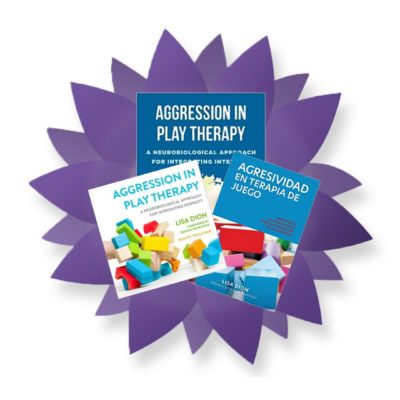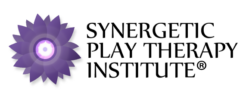
“Dion’s approach to this complex and rarely explored subject is comprehensive, the use of uncomplicated language makes the text accessible to many. . . . An excellent introduction to working therapeutically with aggression in play therapy. It may also be helpful to signpost to social workers and clinicians doing direct work―particularly for the chapters on the Nervous System and Basics on Regulating.”
― British Journal of Play Therapy
“[H]elpful for every child therapist. Dion does a brilliant job of integrating mindful awareness, polyvagal theory, and a neurobiological understanding of aggression into a comprehensive, thoughtful, and much needed guide for handling aggression in play therapy.”
― Psych Central
“Exceptionally articulate and very well presented. . . . [A]n especially and unreservedly recommended addition to Child Psychology and Counseling collections and supplemental studies curriculums.”
― The Midwest Book Review
Offers play therapists practical ways of handling a pervasive issue with intense and aggressive play by their clients.
With an understanding of aggressive play based on brain function and neuroscience, this book provides therapists with a framework to work authentically with aggressive play, while making it an integrative and therapeutic experience for the child.
Through the lens of neuroscience and interpersonal neurobiology, therapists are taught how to integrate the intensity experienced by both the child and the therapist during aggressive play in a way that leads towards greater healing and integration. The book explains the neurological processes that lead kids to dysregulation and provides therapists with tools to help their clients facilitate deep emotional healing, without causing their own nervous system to shut down.
Topics covered include: embracing aggression; understanding the nervous system; understanding regulation; developing yourself as an external regulator; authentic expression; setting boundaries; working with emotional flooding; supporting parents during aggressive play.
Now available in three different versions – English, Spanish and Audio. Choose the option that works best for you!!
Buy Your Copy Today!
Have your read the book? Get 6 APT Non-Contact CE Credits by taking the book study course on our SPTI Learning website.
Write a review and let us know what you think!
Read David A. Crenshaw‘s comprehensive review in the American Journal of Play (Spring 2019, vol. 11, no. 3)
“This book is a much-needed comprehensive discussion on an issue that most clinicians are uncertain how to handle. The invaluable, unique contribution of this book is Dion’s grounded discussion on the importance of the clinician to regulate her arousal when facing provocative aggression, aggressive play, or aggressive themes. This book offers effective ways the therapist (or parent) can develop their own self-regulation so that children receive the support needed for healthful integration.”
― Felicia Carroll, LMFT, RPT-S, Director, The West Coast Institute for Gestalt Therapy with Children and Adolescents
“Aggression in Play Therapy is a must have resource for both new and seasoned clinicians who are working with children who exhibit aggressive behaviors. Lisa Dion help the reader to understand the child from the inside out by addressing the underlying neurobiological factors that drive those unwanted and at times overwhelming behaviors. It helps readers conceptualize the roots of their client’s distress, as well as gives practical play therapy interventions and guidance in engaging and treating disruptive behavior disorders effectively.”
― Clair Mellenthin, LCSW, RPT-S, Director of Child and Adolescent Services, Wasatch Family Therapy, Salt Lake City, Utah
“Lisa Dion’s book guides us through the difficult territory of how to handle aggression when it emerges in the playroom. She shows us how to let go of our fears of increasing aggressive behaviors in children when they act them out in therapy. By mindfully joining with children who are playing aggressively, she demonstrates that our capacity to provide a safe space for the exploration of aggression is actually the best way to help children heal the fear that is causing the aggression in the first place.”
― Theresa Kestly, PhD, author of The Interpersonal Neurobiology of Play

“Dion’s approach to this complex and rarely explored subject is comprehensive, the use of uncomplicated language makes the text accessible to many. . . . An excellent introduction to working therapeutically with aggression in play therapy. It may also be helpful to signpost to social workers and clinicians doing direct work―particularly for the chapters on the Nervous System and Basics on Regulating.”
― British Journal of Play Therapy
“[H]elpful for every child therapist. Dion does a brilliant job of integrating mindful awareness, polyvagal theory, and a neurobiological understanding of aggression into a comprehensive, thoughtful, and much needed guide for handling aggression in play therapy.”
― Psych Central
“Exceptionally articulate and very well presented. . . . [A]n especially and unreservedly recommended addition to Child Psychology and Counseling collections and supplemental studies curriculums.”
― The Midwest Book Review
Offers play therapists practical ways of handling a pervasive issue with intense and aggressive play by their clients.
With an understanding of aggressive play based on brain function and neuroscience, this book provides therapists with a framework to work authentically with aggressive play, while making it an integrative and therapeutic experience for the child.
Through the lens of neuroscience and interpersonal neurobiology, therapists are taught how to integrate the intensity experienced by both the child and the therapist during aggressive play in a way that leads towards greater healing and integration. The book explains the neurological processes that lead kids to dysregulation and provides therapists with tools to help their clients facilitate deep emotional healing, without causing their own nervous system to shut down.
Topics covered include: embracing aggression; understanding the nervous system; understanding regulation; developing yourself as an external regulator; authentic expression; setting boundaries; working with emotional flooding; supporting parents during aggressive play.
Now available in three different versions – English, Spanish and Audio. Choose the option that works best for you!!
Buy Your Copy Today!
Have your read the book? Get 6 APT Non-Contact CE Credits by taking the book study course on our SPTI Learning website.
Write a review and let us know what you think!
Read David A. Crenshaw‘s comprehensive review in the American Journal of Play (Spring 2019, vol. 11, no. 3)
“This book is a much-needed comprehensive discussion on an issue that most clinicians are uncertain how to handle. The invaluable, unique contribution of this book is Dion’s grounded discussion on the importance of the clinician to regulate her arousal when facing provocative aggression, aggressive play, or aggressive themes. This book offers effective ways the therapist (or parent) can develop their own self-regulation so that children receive the support needed for healthful integration.”
― Felicia Carroll, LMFT, RPT-S, Director, The West Coast Institute for Gestalt Therapy with Children and Adolescents
“Aggression in Play Therapy is a must have resource for both new and seasoned clinicians who are working with children who exhibit aggressive behaviors. Lisa Dion help the reader to understand the child from the inside out by addressing the underlying neurobiological factors that drive those unwanted and at times overwhelming behaviors. It helps readers conceptualize the roots of their client’s distress, as well as gives practical play therapy interventions and guidance in engaging and treating disruptive behavior disorders effectively.”
― Clair Mellenthin, LCSW, RPT-S, Director of Child and Adolescent Services, Wasatch Family Therapy, Salt Lake City, Utah
“Lisa Dion’s book guides us through the difficult territory of how to handle aggression when it emerges in the playroom. She shows us how to let go of our fears of increasing aggressive behaviors in children when they act them out in therapy. By mindfully joining with children who are playing aggressively, she demonstrates that our capacity to provide a safe space for the exploration of aggression is actually the best way to help children heal the fear that is causing the aggression in the first place.”
― Theresa Kestly, PhD, author of The Interpersonal Neurobiology of Play

